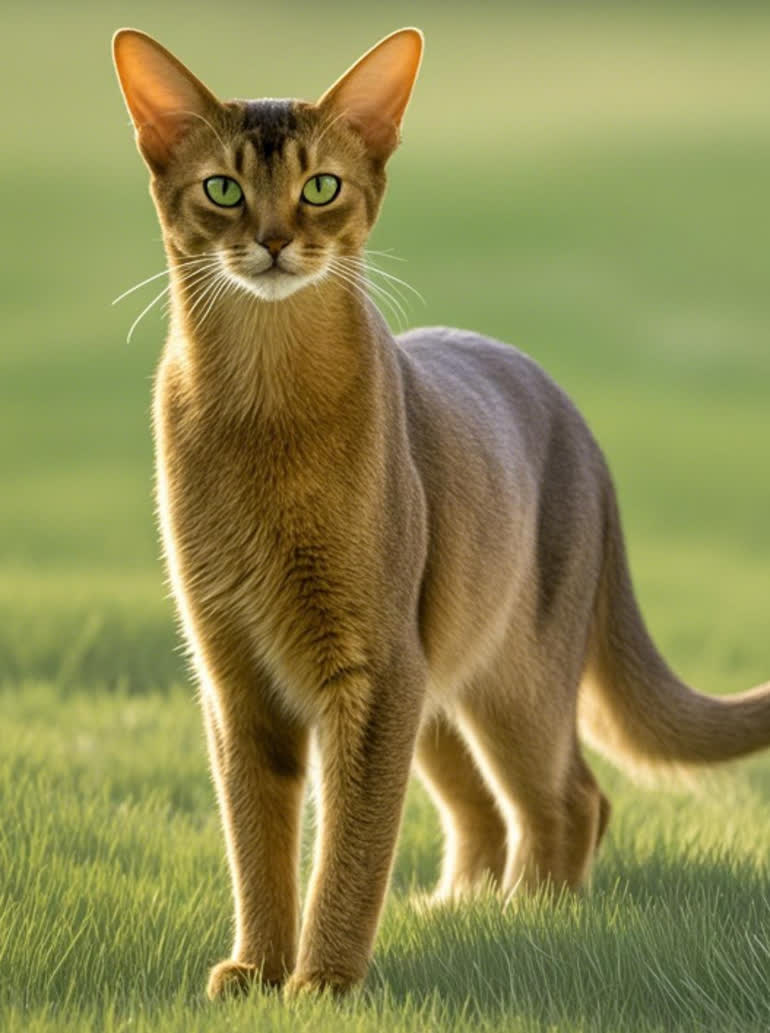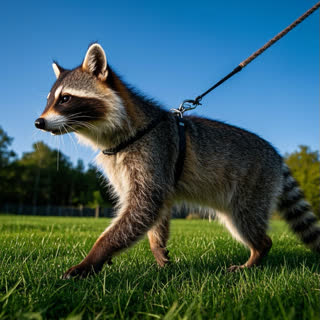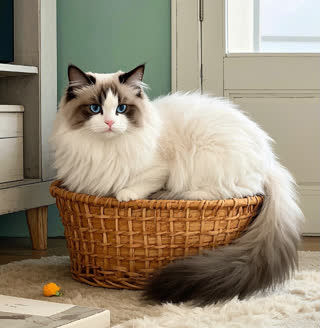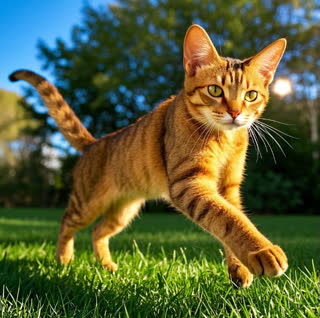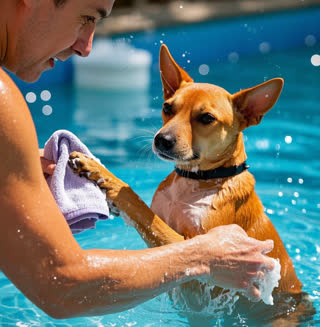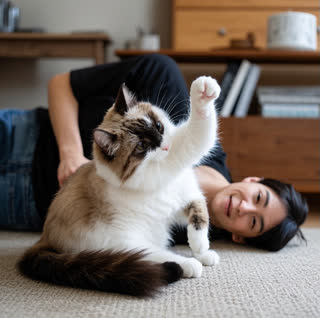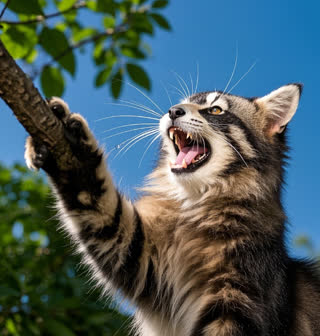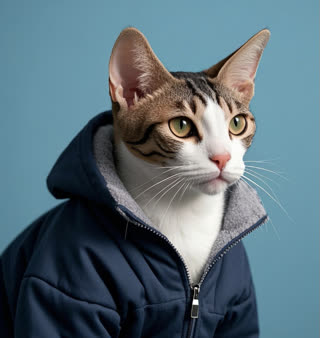The Abyssinian cat breed is one of the most captivating and ancient feline companions, renowned for its wild appearance, playful demeanor, and striking ticked coat. Often called the "Aby" by enthusiasts, this breed combines elegance with curiosity, making it a favorite among cat lovers worldwide. Whether you’re considering adopting an Abyssinian or simply want to learn more about this unique breed, this comprehensive guide covers everything from their mysterious origins to their modern-day care requirements.
Origins and History of the Abyssinian Cat Breed
Despite its name, the Abyssinian cat breed likely has no direct ties to Abyssinia (modern-day Ethiopia). Genetic studies suggest these cats originated in Southeast Asia or coastal India, with their distinct appearance possibly influenced by African wildcats. The breed gained popularity in 19th-century England after being showcased at cat shows, and it later became a staple in American households by the early 1900s. Their "ticked" coat—a genetic trait shared with wild rabbits—adds to their exotic allure.
Physical Characteristics of Abyssinian Cats
The Abyssinian cat breed is instantly recognizable thanks to its athletic build, almond-shaped eyes, and short, dense coat. Key features include:
Coat Colors: Ruddy (burnt sienna), blue, fawn, and sorrel shades with a warm, glowing undertone.
Ticked Pattern: Each hair alternates between light and dark bands, creating a shimmering effect.
Body Structure: Medium-sized, muscular, and agile, with large ears and a tapered tail.
These traits make the Abyssinian a living work of art, embodying both grace and power.
Personality Traits: Why Abyssinians Are So Beloved
If you’re seeking a cat that’s more "miniature leopard" than couch potato, the Abyssinian cat breed delivers. Known for their high energy and intelligence, Abyssinians thrive on interaction:
Playful and Curious: They love climbing, puzzle toys, and exploring every corner of your home.
Social Butterflies: Abys form strong bonds with families and dislike being left alone for long periods.
Vocal Communicators: Expect trills, chirps, and purrs to express their opinions.
Their dog-like loyalty and zest for life make them ideal for active households.
Health Considerations for the Abyssinian Cat Breed
While generally healthy, the Abyssinian cat breed is prone to a few genetic conditions:
Renal Amyloidosis: A kidney disorder that requires early screening.
Progressive Retinal Atrophy (PRA): A degenerative eye disease.
Dental Issues: Regular teeth cleanings help prevent periodontal disease.
Routine vet checkups, a balanced diet, and genetic testing for breeders can mitigate these risks.
Caring for Your Abyssinian: Diet, Grooming, and Exercise
To keep your Abyssinian cat breed thriving, prioritize these care essentials:
High-Protein Diet: Mimic their ancestral diet with meat-rich, grain-free food.
Minimal Grooming: Their short coat needs weekly brushing to reduce shedding.
Daily Playtime: Interactive toys, cat trees, and leash training satisfy their need for adventure.
Abyssinians also enjoy warm spots for napping—consider a sunny windowsill or heated bed.
Abyssinians vs. Other Cat Breeds: What Sets Them Apart
Compared to laid-back breeds like Persians or Ragdolls, the Abyssinian cat breed stands out for its:
Activity Level: They’re perpetual motion machines, ideal for owners who enjoy interactive play.
Independence: While affectionate, Abys prefer being included in activities rather than cuddled.
Longevity: With proper care, they often live 12–15 years or longer.
Training and Enrichment for Abyssinian Cats
Harness their intelligence with:
Clicker Training: Teach tricks like fetching or walking on a leash.
Environmental Enrichment: Rotate toys, create vertical spaces, and hide treats for mental stimulation.
Socialization: Introduce them to new people and pets early to nurture their confident nature.
Fun Facts About the Abyssinian Cat Breed
Ancient Depictions: Their resemblance to cats in Egyptian art fuels speculation about their lineage.
Celebrity Fans: Notable Abyssinian owners include former U.S. President Rutherford B. Hayes.
Pop Culture: The breed has appeared in films and even inspired fictional characters.
Is the Abyssinian Cat Breed Right for You?
The Abyssinian cat breed suits households that can match their energy and provide ample attention. They’re less ideal for those who prefer a sedentary lap cat. If you’re ready for a lively, engaging companion with a timeless mystique, the Aby might be your perfect match.
Conclusion: Embracing the Abyssinian Cat Breed
With their rich history, dynamic personality, and low-maintenance care, the Abyssinian cat breed continues to enchant cat enthusiasts globally. By understanding their needs and quirks, you’ll build a rewarding relationship with this extraordinary feline—one that’s as adventurous and vibrant as the breed itself.
